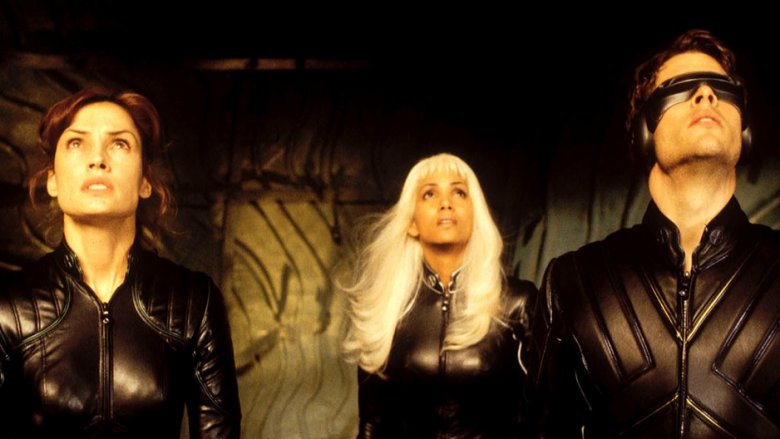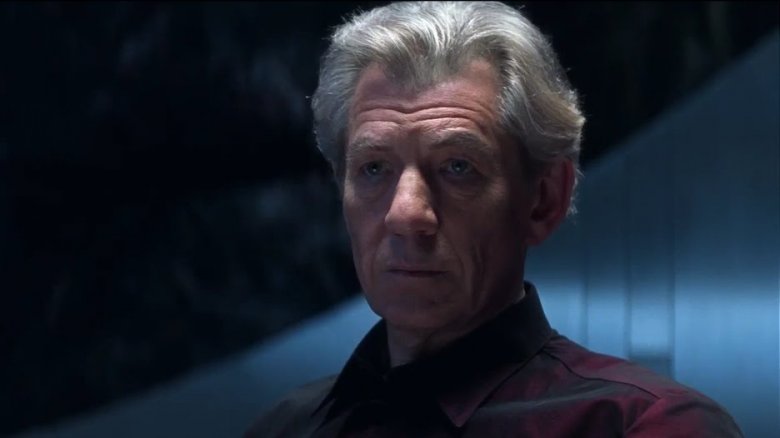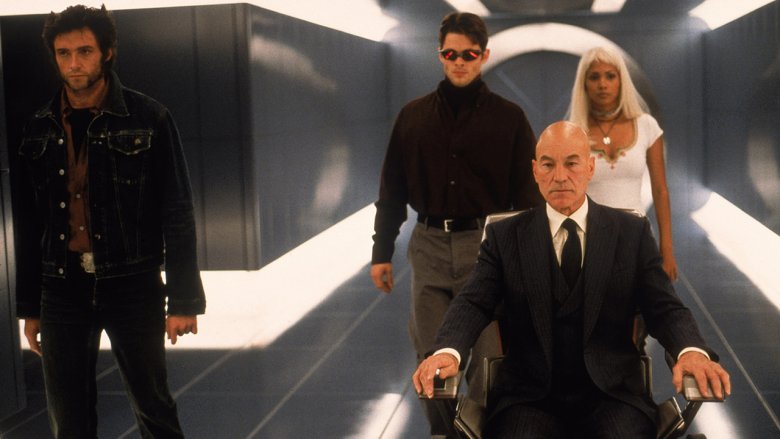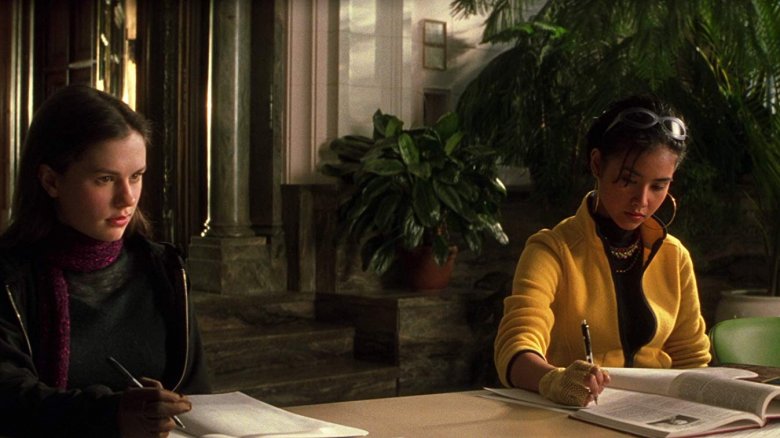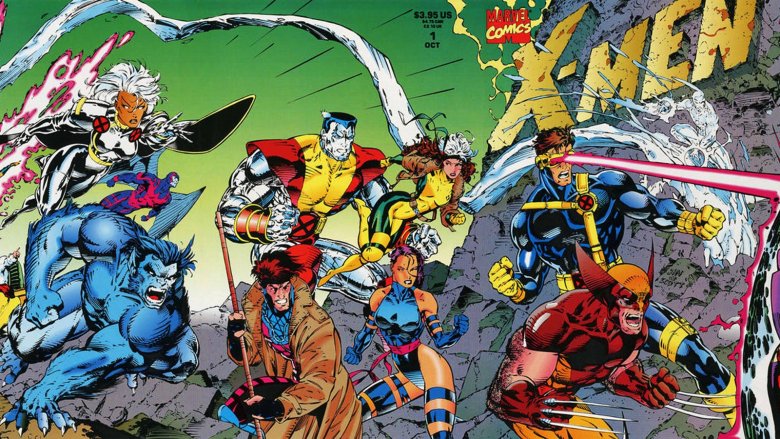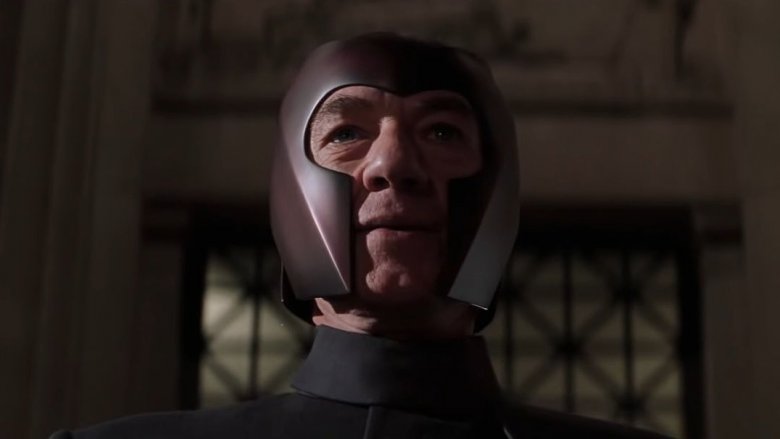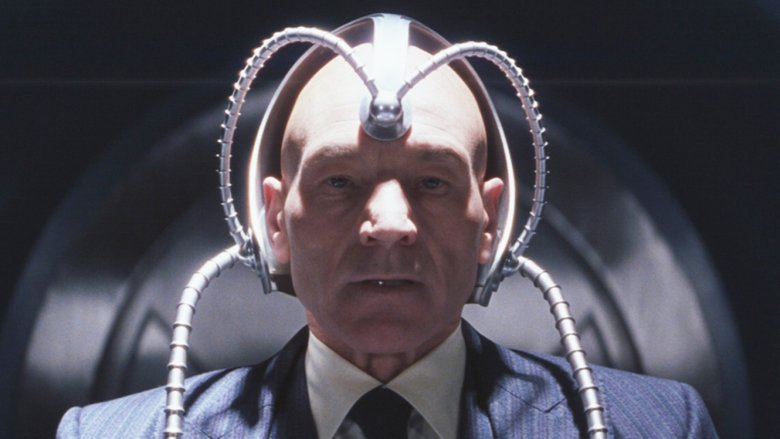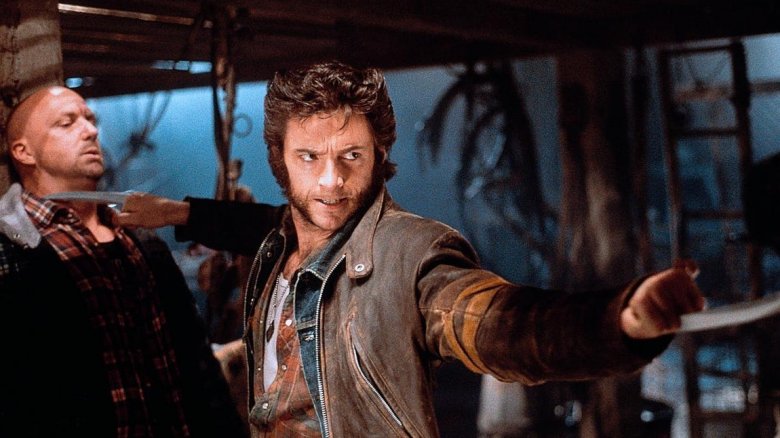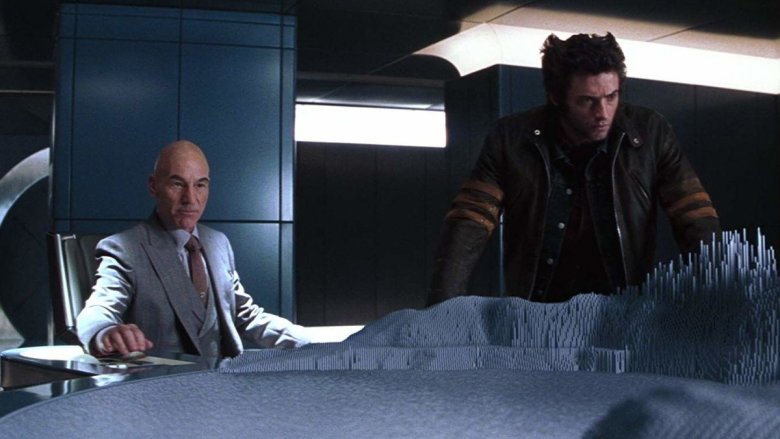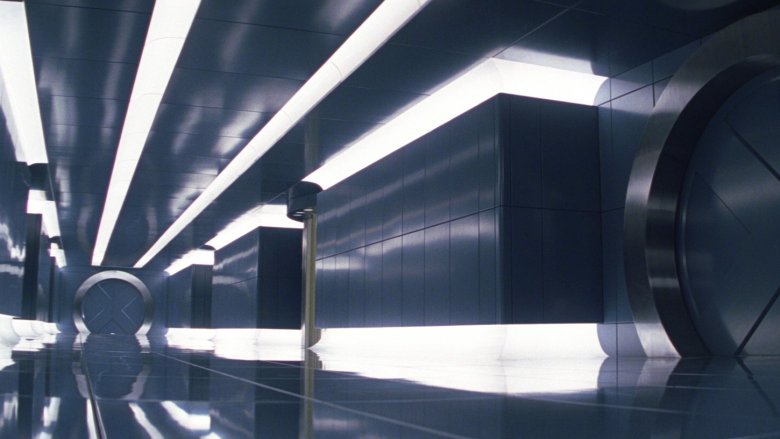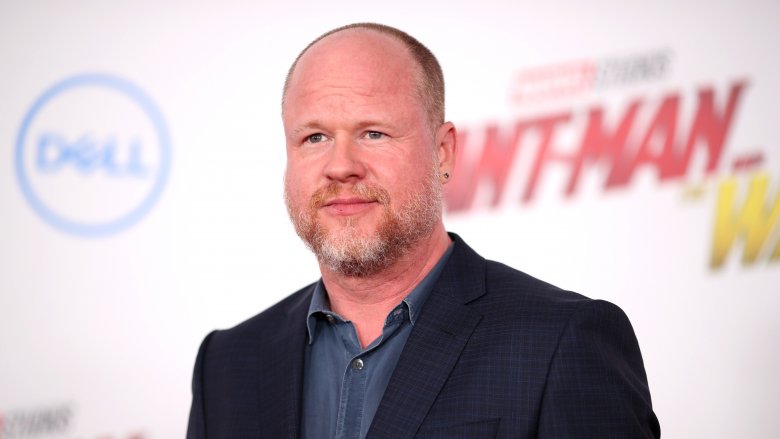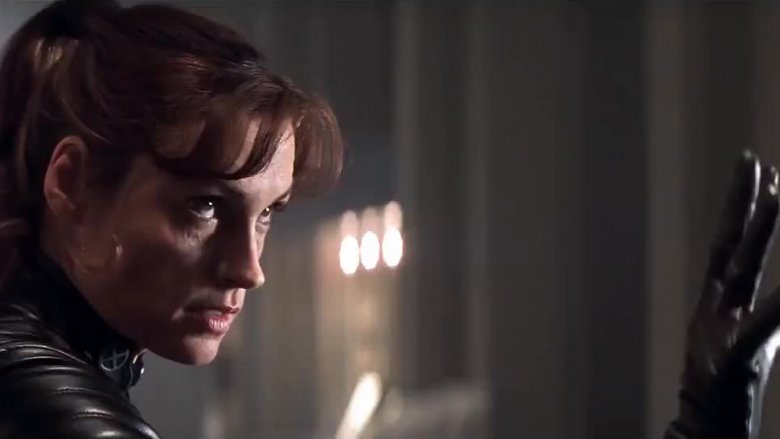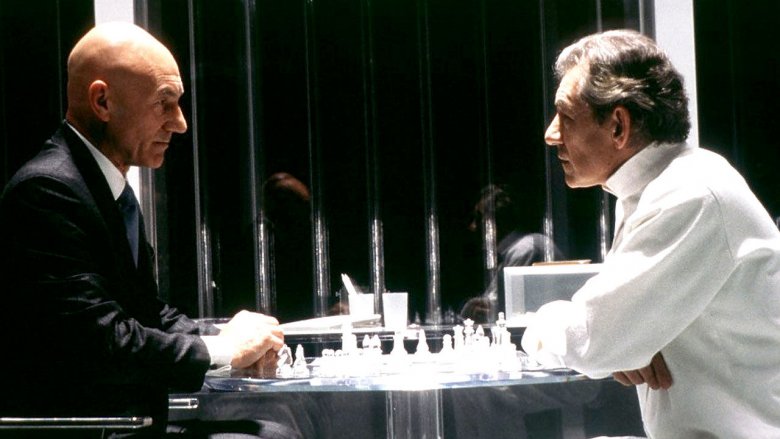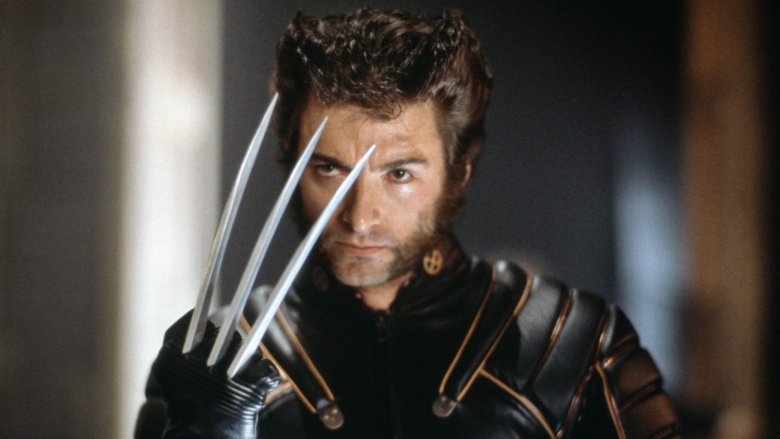How The X-Men Changed Movies And No One Noticed
The summer of 2000 was not a summer of superheroes. Thinking about that concept now feels a little foreign, considering the fact that in every summer since Spider-Man was released in 2002, there's been at least one comic film to dominate theaters. 2000 was different. The highest grossing film that season was Mission: Impossible II, followed by Gladiator.
X-Men happened to be only the third major motion picture directed by Bryan Singer, following 1995's The Usual Suspects and 1998's Apt Pupil. Neither previous film could be considered in the same vein as a comic movie, and at that point, the biggest recent comic franchise films were a live-action cartoon (Batman & Robin) and an R-rated vampire flick (Blade).
Still, Fox took a chance with a Marvel property that would look and feel somewhere in between. With a fairly modest budget ($75 million), X-Men would go on to bring in nearly $300 million worldwide and set itself apart as a good superhero movie. It would also completely change the way we make and watch movies.
X-Men brought us a sympathetic villain
Looking at the opening sequence of a film like 1997's Batman & Robin, it's the hero who's immediately set up as the main character. In this case, it's both Batman and Robin, who open the film up with the remark, "Chicks dig the car," and the equally eye-rolling followup, "This is why Superman works alone." Everything about it just sort of feels cheesy and over the top.
X-Men did something completely different. The film opens in a Nazi concentration camp in 1944 with a boy who, separated from his parents, makes a desperate attempt to reopen the camp's metal gates with his superhuman powers. The boy is a young Erik Lehnsherr, who would go on to become the film's primary antagonist, Magneto. But we don't see him as a villain — at least not at first. We see him as a child subjected to an unimaginable horror. When it is revealed that the child has grown into the villain, it's as a sympathetic one.
X-Men changed how comics were adapted
In his review of the film, Roger Ebert said, "X-Men is at least not a manic editing frenzy for atrophied attention spans. It's restrained and introspective for a superhero epic..." In fact, much of X-Men's hour and 44 minute runtime is spent on character development, introducing audiences to the main players, explaining their special abilities, and delving into their personal struggle against bigotry and discrimination. Fight scenes and action sequences are there, but they're not the main focus of the film.
It might have something to do with the fact that Bryan Singer had never read the comics as a kid. Singer told the Los Angeles Times in 2016 that it wasn't until he started watching the animated series later on in life that he began to form an attachment to the characters. "When I suddenly come across this universe that's all about misfits and outcasts who become superheroes, it intrigued me," he said. "I started to figure a way to tell this story not just to the fan base but to a wider audience." The focus of the film became a social message, as opposed to the "big stuff" one might expect from a comic movie.
The heroes of X-Men are characters first, mutants second
Magneto wasn't the only X-Men character to get his on-screen introduction via a relatable, human backstory. In Mississippi, we see 17-year-old Marie D'Ancanto accidentally put her boyfriend into a coma after she kisses him for the first time. Regardless of the continuity between her portrayal in the original comics and in the 2000 film, Marie — later Rogue — wasn't introduced as a fully-fledged misfit superhero. She was our point-of-view character, a regular person... with not-so-regular problems.
Bryan Singer told the Los Angeles Times that he treated the characters in X-Men "with the same seriousness" as those in The Usual Suspects. That legitimacy was crucial to making a satisfying movie, he explained, saying, "You can't just take a bunch of characters and throw them together and stir them up in a soup and hope that it works." Instead, it was important for him to take his time with the film, and to create a story that takes place in a comic book universe, but isn't ruled by comic book continuity.
It didn't rely on X-Men comics imagery
From the beginning, X-Men worked to set itself apart from its comic movie predecessors via its tone and approach to storytelling. Bryan Singer went into the movie from a standpoint of really wanting it to be a serious film set in a fantastic world, but he was also keenly aware of how audiences would feel going into a "comic movie."
In an interview with MTV News, Hugh Jackman, who played Wolverine throughout the franchise, said that Singer was so dedicated to making X-Men stand out as more than just a comic film that he wouldn't even allow comic books onto the set, thereby effectively making source material contraband. "Comic books were banned on the set, because Bryan Singer had this thing that people would think — he really wanted to take comic book characters seriously as real, three-dimensional characters," he said. "People who don't understand these comics might think they're two-dimensional."
X-Men blurred the line between good and evil
Before X-Men came along, comic adaptations formed clear lines between the hero and the villain. The Batman films of the late '80s and '90s saw the caped crusader go up against the kind of evil foe that may have started out as a decent human being, but dove head-first so far into crazy that, in the end, there was little to nothing about them that could be considered redeemable. Even the Lex Luthor of old seemed to have little motivation outside of creating chaos and destruction.
X-Men's Magneto was different, playing a sort of Malcolm X to Charles Xavier's Martin Luther King Jr. in the mutant version of the Civil Rights Movement. Mikhail Lyubansky, Ph.D., wrote for Psychology Today that the X-Men films, particularly the original, attempted to send a message regarding race and racism by "drawing a variety of explicit and unmistakable parallels between Xavier's and Magneto's fight for mutant rights and the U.S. Civil Rights Movement of the 1960s." While Professor X advocates for peace, Magneto is convinced the only outcome is war, but ultimately, they both want mutantkind to be raised up from oppression.
X-Men carried a social message
So if Professor X is the mutant version of Martin Luther King Jr., and Magneto is the mutant version of Malcolm X, what does that say about the film itself? According to Mikhail Lyubansky, Ph.D., it goes back to the original comic and some pretty heavy themes. Via Psychology Today, "As long-time X-Men writer Chris Claremont explained back in 1982, 'The X-Men are hated, feared, and despised collectively by humanity for no other reason than that they are mutants. So what we have... is a book that is about racism, bigotry, and prejudice.'"
The Artifice outlined the role of social politics in both the X-Men comics and the films. While the later X-Men films delve deeper into genetic mutation and government control, the first film deals primarily with registration. For Senator Kelly, it's the basis of his political platform — to force mutants into exposing themselves, a storyline that parallels both Nazi Germany as well as several North American immigration policies that have been used to discriminate against people viewed as outsiders.
The cast of X-Men wasn't full of bankable stars
The three biggest films of the 2000 summer box office were headlined by Tom Cruise, Russell Crowe, and George Clooney, respectively. At that point in time, all three had proven themselves as leading men, and Clooney even had the distinction of playing a superhero once in his career. X-Men's stars were a couple of actors who were in their '60s (Patrick Stewart, then best known for his small-screen work, and a pre-Gandalf Ian McKellen), supported by a mostly unknown cast who had done some TV work and a teen horror flick here and there. Halle Berry had done some high-profile movie work, but she wouldn't go on to win her Oscar for Monster's Ball or become a box office force of her own for a couple more years.
In speaking with MTV News, Hugh Jackman said he went into the audition as if it weren't a real one, "because Dougray Scott was going to play it." The actor went on to explain, "I think I was sent up there just to kind of send a message back to Mission: Impossible II like, you better hurry up because we're going to start looking at other people." What X-Men proved, however, is that you didn't need a big star to sell a film to audiences.
X-Men indirectly helped Marvel pull itself out of bankruptcy
In 2019, Marvel Studios released Avengers: Endgame, its 22nd film and the second highest-grossing film of all time to date, with a box office draw of nearly $3 billion. Endgame marked a high for the company, and for the comic film genre, but chances are it wouldn't exist had X-Men not first paved the way.
In 1996, Marvel filed for bankruptcy and sold off the cinematic rights to several of its properties in an effort to stay afloat. 20th Century Fox picked up the rights to X-Men, and although it was a success at the box office, Marvel wound up with zero to show for it. Two years later, the same would happen with Sony's Spider-Man, and again, Marvel would walk away with nothing.
In 2005, after X-Men and Spider-Man had proven successful a comic film could be if done properly, Marvel gambled everything they had to launch their own production studio, with Iron Man ushering in the Marvel Cinematic Universe three years later.
The production design of X-Men created a real world
Pre-2000 comic book films relied heavily on production design to mimic the sort of outlandish imagery that was so often seen on the page. X-Men did away with that mentality, and instead focused on presenting a more tangible world. As with its characters, the filmmakers sought to create a setting rooted in reality.
In a 2014 interview with Collider about X-Men: Days of Future Past, production designer John Myhre spoke about working with Bryan Singer to come up with something that would be faithful to what comic fans wanted while also being a vision all its own. "We do have a lot of leeway, but Bryan wants to make sure that nothing gets too out of reality," he said. "So if you have an idea that's sort of wild — which we do — you just have to build it in a way that's real. That it's not a magic material. That it's concrete and paint. That's why he's so good with these movies."
X-Men ushered Joss Whedon into the world of superhero movies
Today, Joss Whedon is a name that's become synonymous with the Marvel Universe. He wrote and directed the first two Avengers films, on top of creating the Agents of S.H.I.E.L.D. TV series and penning a number of X-Men comics. His snarky, lighthearted tone is easy to spot (it's even more obvious in the rework he did on Justice League), but he's actually been involved in the world of superheroes far longer than one might imagine.
In a 2001 interview with The A.V. Club, Whedon recounted how he was hired on to X-Men to "come in and punch up the big climax, the third act, and if you can, make it cheaper." You won't see his name in the credits, because his version of the script was ultimately scrapped altogether — save for a few lines that were taken out of context and delivered very badly.
Storm's infamous one-liner after her defeat of Toad was a particular sticking point. "Everybody remembers that as the worst line ever written, but the thing about that is, it was supposed to be delivered as completely offhand." According to Whedon, "Halle Berry said it like she was Desdemona."
X-Men simplified storytelling (for better or worse)
Perhaps because of Bryan Singer's desire to appeal to both comic fans and a general audience, X-Men winds up feeling at times like a hundred different movies thrown into one. Darren Franich described this genre mashup for Entertainment Weekly, saying, "Serious Question: What the hell kind of movie is this? ... Easy answer: We're watching a superhero movie. More complicated answer: We are watching a fascinating attempt to adapt decades of comic book ensemble history into one coherent single story."
Whether or not X-Men was successful in this attempt to squeeze years of comic lore into a single narrative is certainly up for debate, but that doesn't change the fact that comic films continue to work this way, with varied degrees of critical success. 2005's Sin City brought together a large ensemble cast of characters and varying storylines in just about two hours and remains one of the better-received comic adaptations of the 2000s. And by 2014, X-Men: Days of Future Past was juggling two sets of X-Men characters over multiple timelines.
X-Men was built to be serialized
Love it or hate it, X-Men was built to begin a franchise. It can't be considered an origin story — as Comic Vine pointed out in 2013, "X-Men is more about exploring the world and introducing characters to audiences than telling a straightforward superhero story." Unlike the protagonists of most superhero movies, X-Men's characters are all born with their powers; it's just a matter of discovering how to use them.
If you think about the original X-Men trilogy as a whole (and in terms of a typical three-act plot structure), the first X-Men film is the setup. Bryan Singer introduces audiences to the characters and their powers, and yes, there's a final battle. But if we're thinking about superhero films, that last showdown feels more like a midpoint than an ending.
Then there's the real ending — the one in which Professor X visits Magneto in his plastic cell, where Magneto shares his plan to continue his fight. It's obvious this isn't the real end of the story and that there's a definitive plan for more. And now, we watch comic films and actually expect a tease for more. What's a superhero movie without its inevitable sequels?
X-Men showed that superhero movies could be box office hits
By the time X-Men arrived in theaters, it had been over a decade since Tim Burton's first Batman movie had set the box office on fire. In the time since, superhero movies had hardly been shown to be a guaranteed path to blockbuster success. Even Batman's sequels had turned into a game of diminishing returns.
But 2000's X-Men proved two things: the first is that comic book adaptations didn't have to be campy. Bryan Singer worked hard to distance the film from its predecessors in that regard, and it worked out in his favor, at least as far as critical consensus goes. It also proved that comic films could be profitable. Longtime X-Men comics writer Chris Claremont told Polygon in 2019, "Up until then everybody had looked on superhero films as losers. Then, the X-Men rolled in with a nine-figure opening weekend, which nobody saw coming... 20 years later we are in the world of today with Black Panther pulling in three Oscars and Into the Spider-Verse getting Best Animated Film."
